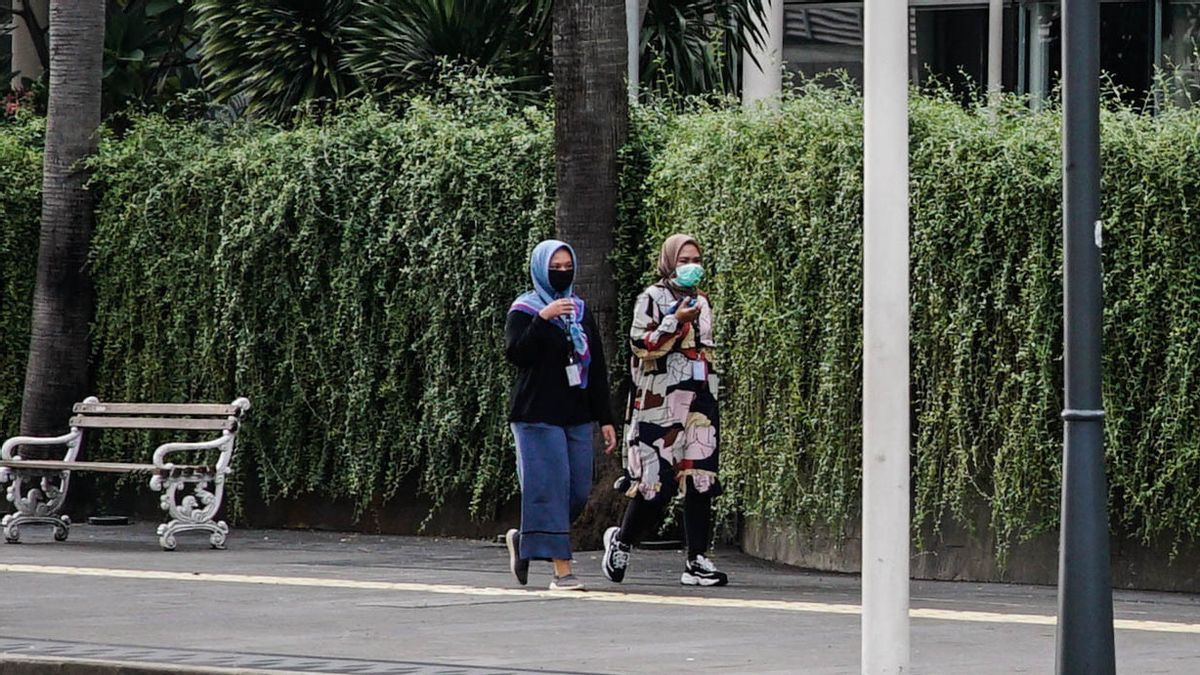JAKARTA - The National Police is preparing criminal sanctions for violators on a new concept of normality which will soon be implemented in several regions.
Head of the Public Relations Division of the National Police, Kombes Ahmad Ramadhan, said that in implementing the new concept of normality, the police will act decisively for the people who do not prioritize health protocols during the pre-COVID-19 period.
"Those who violate the rules or fight against the officers can be subject to Article 212 of the Criminal Code," Ahmad said in Jakarta, Thursday, May 28.
Article 212 of the Criminal Code contains people who ignore appeals from officers or oppose officers. The penalty in this article is a maximum of 1 year and 4 months or a maximum fine of Rp. 4,500.
However, Ahmad emphasized that the imposition of criminal sanctions was the last step that the police would take. This is because the apparatus will put forward a humanist and persuasive way when monitoring the implementation of the new nationality policy.
"The National Police prioritizes persuasive efforts to residents during the new normality," said Ahmad.
The application of this article is in accordance with the telegram letter number 249 dated 28 May 2020 to implement a new normal scenario in order to accelerate the handling of COVID-19 issued by the National Police Chief, General Idham Azis.
The contents of the letter instructed all staff to coordinate with relevant agencies in order to monitor new norms. Including being humane when monitoring and implementing regulations.
"Asking the Kasatwil to coordinate with the TNI and other stakeholders to work together with the National Police to conduct public disciplinary efforts in adhering to health protocols in accordance with the provisions of crowded places, tourism, places of mass crowds, economic centers, markets, malls and other public areas through appeals and warnings. humanist towards a New Normal life, "said Ahmad.
Sanctions are not the most importantUniversity of Indonesia criminologist Adrianus Meliala said that the sanctions issued by the Police were the most appropriate step for prosecution in this new normal period. However, what should be noted is more consistency in law enforcement.
So, with consistency in applying the existing rules, the community will be more obedient and apply the new concept of normality echoed by the government.
"Yes (it must be consistent). In enforcing sanctions there must be integrity and consistency," said Adrianus.
In addition, the selected criminal sanctions have certainly gone through many processes of consideration. This is because if you apply serious criminal sanctions it will only have a negative effect. One of them takes a lot of time in the filing and trial process.
"Because when (heavy sanctions) were enforced, there were problems with formal and material aspects. Especially in terms of evidence and efforts to gather evidence," said Adrianus.
Meanwhile, a criminal law observer from Al Azhar University Suparji Ahmad said, when the police apply sanctions for violators, it is better to use fines. However, the fine money must be clear about the flow of funds.
Meanwhile, when the police apply criminal sanctions, the policy will create new burdens and overlap with the Ministry of Law and Human Rights.
"If it is deemed necessary, criminal sanctions are more suitable with fines because imprisonment will create new burdens for the state and contradict the assimilation policy," said Suparji.
According to him, there are other ways when you want to provide a deterrent effect on violators of the new normality policy. One of them is by giving two opportunities to the community. When they repeated the second time, then the offender was placed in prison.
"If the prison is experimental without having to be detained in prison, if you repeat the mistake again, then you will be imprisoned," concluded Suparji.
The English, Chinese, Japanese, Arabic, and French versions are automatically generated by the AI. So there may still be inaccuracies in translating, please always see Indonesian as our main language. (system supported by DigitalSiber.id)








